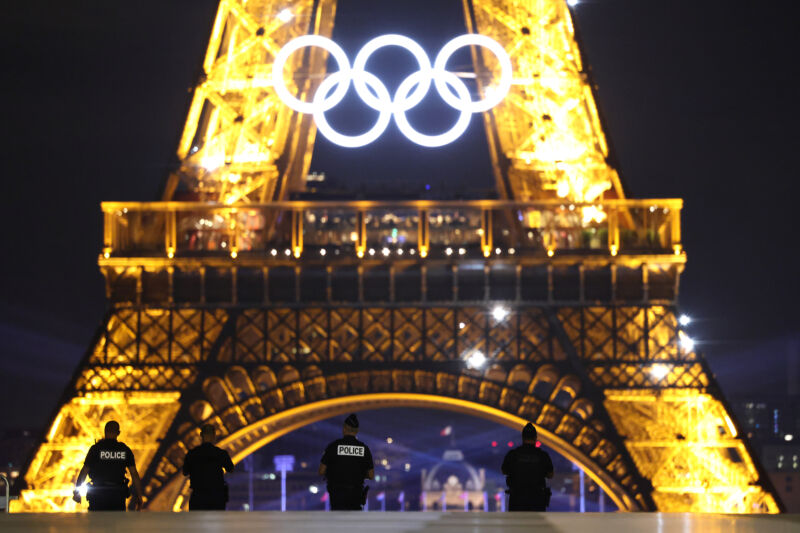
Enlarge / Police observe the Eiffel Tower from Trocadero ahead of the Paris 2024 Olympic Games on July 22, 2024. (credit: Hector Vivas/Getty Images)
French interior minister Gérald Darmanin has spent the past week justifying these measures as vigilance—not overkill. France is facing the “biggest security challenge any country has ever had to organize in a time of peace,” he told reporters on Tuesday. In an interview with weekly newspaper Le Journal du Dimanche, he explained that “potentially dangerous individuals” have been caught applying to work or volunteer at the Olympics, including 257 radical Islamists, 181 members of the far left, and 95 from the far right. Yesterday, he told French news broadcaster BFM that a Russian citizen had been arrested on suspicion of plotting “large scale” acts of “destabilization” during the Games.

Parisians are still grumbling about road closures and bike lanes that abruptly end without warning, while human rights groups are denouncing “unacceptable risks to fundamental rights.” For the Games, this is nothing new. Complaints about dystopian security are almost an Olympics tradition. Previous iterations have been characterized as Lockdown London, Fortress Tokyo, and the “arms race” in Rio. This time, it is the least-visible security measures that have emerged as some of the most controversial. Security measures in Paris have been turbocharged by a new type of AI, as the city enables controversial algorithms to crawl CCTV footage of transport stations looking for threats. The system was first tested in Paris back in March at two Depeche Mode concerts.
Read 12 remaining paragraphs | Comments






